Hiding. It’s what we do everyday. We avoid eye contact with that acquaintance at the store. We choose food delivery left at the door, instead of receiving it like we did back when all we had were doorbells and cash. We post carefully curated pieces of ourselves online—just enough to be seen, but never fully known.
On their own, these choices seem harmless. I’ve done them all, and more. But what happens when each of these small acts compound, instance after instance, day after day? What are we left with when we have avoided giving ourselves to the world, over and over again?
The answer is not simply nothing. It’s beyond nothing. It’s isolation, which becomes depression. It’s thoughts ricocheting around a single brain, colliding into anxiety. It’s the slow spiral of disappearing into ourselves, in a modern culture that makes it possible to do with seamless consistency and ease.
The Ways We Hide
When I think about hiding, I picture a little girl hiding behind her mother’s skirt. Scared of the unknown, so she clings to something familiar, something “safe.” It’s not inherently wrong. Seeking refuge when we feel threatened is natural. But the repeated pattern of hiding behind mommy’s skirt every time can turn you codependent, render you incapable of leaving your mother’s house, and any chance of living a normal, well-adjusted adulthood.
And of course, there are endless things to hide behind besides mommy or daddy. There’s other mommies and daddies (relationships, codependency). There’s drugs (always a fun one). There’s work and busyness (because who doesn’t want to feel productive and important?). There’s intellectualization— just try to understand everything and contain it all in your head, instead of actually having any lived experiences (Meghan captures this perfectly in her post: Does Laplace's Demon Understand Love?). None of these things are inherently bad on their own, but when we use them as hiding places, they turn sour.
Motherhood can be an easy place to hide. It’s the old joke: kids are the perfect excuse to get out of anything. And it’s not just a joke—they really do stop you from doing a lot. So it feels justified. Those who’ve spent time around small children know how impossible it is to finish a coherent thought, much less a conversation.
Kids don’t just disrupt your social life. They disrupt your capacity to dream, to reflect, to figure out what you even want—let alone work toward it. Raising children is consuming and sacred and full of love, and so it can easily become everything. Mom mode is full throttle, and so it becomes challenging to step out of it.
The truth is, our children grow up. And if we stay stuck in caregiving mode, if we receive all our worth from it, if we let our children hide behind our skirts forever, we don’t just lose ourselves. We turn into the devouring mother—the one who lives through her child, and in doing so, never lets them live freely at all. We become dependent on their dependence. We lock both of us into codependency that can outlive us.
How Modernity Has Made Hiding Easier Than Ever
Our modern society has become the extension of the over-bearing, devouring mother archetype. The message is simple and constant: everything is dangerous—just stay inside. Stay home. Buy this. Click that. You’ll be safe. You’ll be okay.
But unlike the devouring mother who feeds on ego gratification from her enmeshed child, the cultural machine runs on something else: attention and money. Every anxiety-inducing headline, every piece of clickbait, every doom-scroll video is designed to keep you glued. And it works—because we’re biologically wired to attend to threats.
Millennials in particular were raised in this perfect storm. We had anxious, overbearing mothers telling us the world was a dangerous place. And inside our homes, we had access to an unprecedented world of entertainment—TV, gaming consoles, and eventually, the internet. Entire universes contained in glowing rectangles we could carry into our rooms. The result? A generation of inside kids—raised on safety, dopamine, and disconnection.
Then came social media. Yet another reason to stay home, because now, you didn’t even have to leave the house to “see” people. It quickly became a hiding place—not just for the lurkers who never post, but for those who post constantly. Some hide behind a carefully curated persona; others hide behind outrage and mob dynamics, tearing people down for likes and power.
Of course, none of this is new. Social games, public performance, and manipulation have always been part of human interaction. Social media didn’t originate them. It just magnified them. And like most tools, it depends on how we use it.
It can be a hiding place. But it can also be a sharing place. A place where people come to be seen and to see others. A place of performance or a place of presence. It depends on who we choose to be.
Why We Hide
In the modern world, threats don’t just show up as immediate physical danger—like a snake in the grass—but more often as threats to the ego, to our sense of self and sanity. As technology advanced, so did our ability to approach life with more control. Now, we can decide who comes into our space. It’s considered polite to text or call before showing up to someone’s house, whereas not long ago, there weren’t even phones or doorbells, much less separate homes to shield us from others.
As the world became more “civilized,” so did we. The left-brain mode of thinking became more dominant, as we categorized and invented and controlled. Now, all of sudden, we find ourselves deep in our logic-brain as a society, and somehow nothing makes sense anymore. The old ways of being—of living in messy community, of navigating the unpredictable “other”—feel unappealing, even dangerous. We are bombarded with terrifying headlines in tandem with perfectly curated lives. No wonder we’ve lost our sense of what is actually urgent and what is actually beautiful. So we hide. In fear. In perfectionism. We stop showing up—or we show up filtered.
Even if we put aside the tiny, marginal chance that someone will violently or at best psychologically destroy you for showing up fully, socializing can still be scary. Scary because it’s intimate. In this modern age, we’ve had little opportunity to practice intimacy to the extent it was forced upon the past generations for ages before us.
In face to face interaction, there is no hiding. No special Instagram filter that makes your cheekbones pop. Just you, in all your glory and tragedy. That might be why voices are so intimate, it’s something that is the essence of you that you can’t change or modify in any convincing way. I’m fair-skinned, so the second I’m hot or embarrassed, my whole face turns bright pink. In person, I can’t hide how I feel even if I wanted to. My own body betrays me.
That’s what makes showing up so hard. You risk being fully seen, showing all your cards. Before I had kids, writing felt like this impossible task. I was afraid of putting myself out there and being judged, looking stupid. Now, after two unplanned pregnancies—being metaphorically pushed into the pool—I realize what real stakes feels like, and the potential pain of looking dumb doesn’t feel as serious anymore.
I remember what that fear felt like. It’s the same trap so many young people fall into: staying in love with potential instead of embracing the imperfect, often disappointing reality of doing the thing. In our minds, we can conceive of boundless, beautiful things, but at the end of the day, potential is merely an infinite nothingness.
Writing down an idea in my mind that feels epic, that’s changed my life and how I see things, having to manipulate this limited form of language to capture the effect and spirit of what lives in my mind? It’s painful. It’s painful because you’re having to kill every other version that could have existed. To create is to kill possibility. The Latin root of the word decide is decidere: “to cut off.” You don’t just create something—you sacrifice everything it might have been. Creating, bringing something from potential to life means making hard decision after hard decision, over and over again.
There’s this moment in Succession where Kendall, desperate for his father’s approval, asks him, after years of hoop-jumping, if he was ever really considered to take over his father’s multi-billion dollar media empire. His response, “You’re not a killer,” was not only brutally honest, but particularly cutting for Kendall, as he had been tortured by guilt over a car crash in which a man died. He was afraid he was literally a killer. But in the metaphorical sense, he wasn’t.

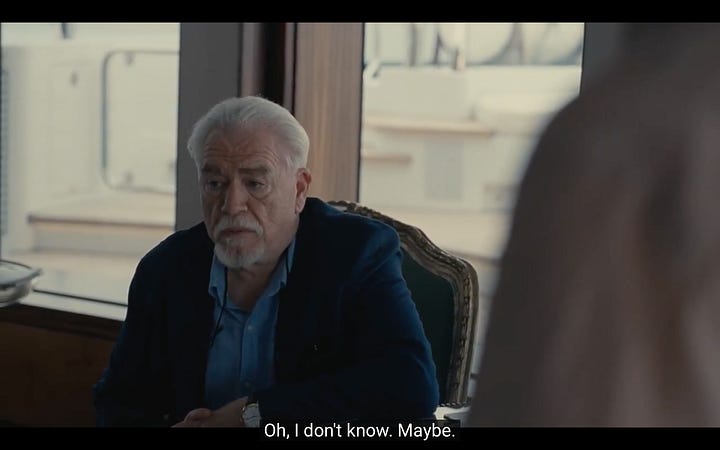

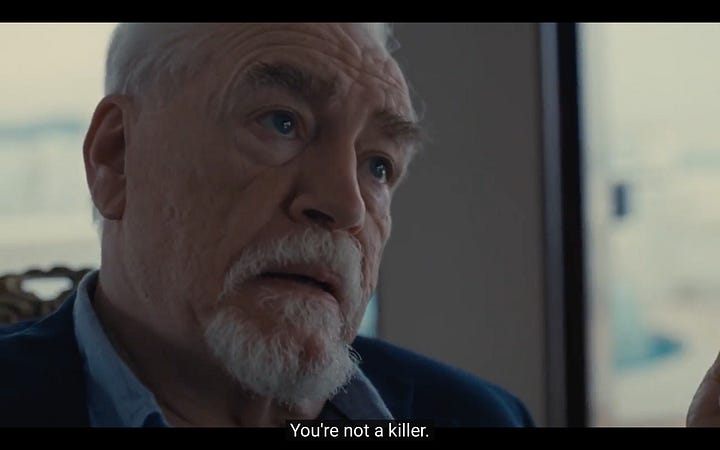
Without shadow integration— without accepting the part of us that can hurt and be hurt— we’re incapable of truly showing up. Of fully immersing ourselves in the real world, flawed self among other flawed selves.
What if revealing yourself to the real world means being cut open—only to discover that the version of you in your ego-mind isn’t true? That’s not the end. That’s the beginning. That’s when you can finally become something real—someone rooted in reality instead of fantasy. Because if we keep hiding, if we keep choosing the safety of fantasy over the feedback of reality, we don’t just stay stuck—we slowly erode. And that cost adds up.
The Hidden Costs of Hiding
You pay the price of who you could be when you remain who you are. When you remain in hiding from this scary, uncertain world—clinging to someone or something that feels safe and known— you’ll never get to see who you could become.
Take the overgrown daughter still living in her mother’s house. As long as she stays, she has to continue performing the role of a girl, even when she is not, in order to continue making her mother feel needed. The moment she shows she is a woman, her mother will have to undeniably see that there is no need for her mothering anymore. Without her mother’s protective barrier, she will have to face something terrifying: consequences. She now becomes responsible for her actions. She can no longer blame her mom when things don’t go her way. She has to step out of the roles of the small, comprehensible game and into the larger, unknown reality.
That’s the price of hiding. The longer you stay protected, the longer you stay unfinished.
In stories, characters are revealed through the actions they take. No one wants to read a story where the protagonist isn’t actually doing anything, doesn’t faces challenging circumstances, and avoids makes decisions. Character is forged only through interacting with life. Action, challenge, and hard decisions are the raw material of every story we love— because they’re the raw materials of life, of becoming.
Sometimes I think about all the essays I never wrote before I had kids. The things I could’ve said when I had more time, more space. But I didn’t know how. I was scared. God forbid I actually put my ideas to the test and grow from it.
All is not lost. I’m not dead yet. I have responsibilities I didn’t have before, and major time and energy constraints, but at least now I have my agency. My mind is my own. I’m not shackled to the imagined judgment of the Other anymore. As long as we’re breathing, we have hope to move forward, no matter the circumstance. There is always a new challenge to face, another chance to act boldly and prove to ourselves that we’re alive.
Psychoanalyst Carl Jung pointed out the risk of hiding on our psyche:
“If I have to suffer, then let it be from my reality. A neurosis is a much greater curse!… One cannot do more than live what one really is. And we are all made up of opposite and conflicting tendencies… People do not realize just how much they are putting at risk when they don’t accept what life presents them with, the questions and tasks that life sets them.”
Recently, I found myself spiraling into bouts of anxiety—wondering if I was a good mother, if I could ever become one. I was stuck in my hiding at home: scrolling, comparing, watching other moms live while I sat paralyzed by self-doubt, isolated and lost.
This was perhaps not coincidentally around the time I noticed my older daughter was ready for more. More experiences in the outside world. More connection. More life. She was reaching a new a level in her development, and I realized: this was my chance to act.
Showing up Scared
“If you're worried about being a good mother, you're not one—because you're thinking about yourself.”
— Rabbi Manis Friedman
It wasn’t a matter of asking whether I was good a mom or trying to quantify all the ways I could be. The real task was to release the question altogether. To stop spiraling. To stop thinking about myself. My anxiety and shame weren’t helping my kids. They were stealing my presence— draining the energy and capacity I could be giving to them.
So I started doing what I could to get out of my head and into the real world. I reached out to other moms. I created opportunities for my girls to socialize. I forced myself to connect, to plan, to step into the awkwardness of being a homeschooling mom in a town where I don’t know anyone.
No more living in our cozy little bubble of just the three of us. We had to invite new people into our orbit. And with that came a spiral of intrusive thoughts, ranging from neurotic momma bear (What if they’re pedophiles?!) to judgmental and self-protective (What if they’re dumb and annoying?) to semi-autistic panic (Wait, how do I talk to adults again?). Yeah, my mind is a lovely place to be. No wonder I wasn’t surviving in there. More proof I needed to get out of it.
“To venture causes anxiety, but not to venture is to lose oneself. And to venture in the highest is precisely to be conscious of oneself.”
— Kierkegaard (The Concept of Anxiety, 1844)
The reason I finally started writing after all those years— the fire in me that burned through years of self-protection— was the hope that something I’ve learned could help someone else. Someone like the version of me who used to hide. It began, truly, with love. With a desire and willingness to connect and be connected to other people.
It's the same reason I'm putting myself out there for my daughter. Because I love her and I want her to have the experiences she needs to grow up well— and that includes watching me live.
Writing is still hard. Trying to shape the ineffable thing in my mind into something readable for strangers online? Still feels like labor. Over and over again. But maybe that’s exactly the point. Labor produces. It’s painful—but it gives life.
I understand how some mothers consider it impossible to take on any more demanding and difficult tasks. The magnitude of our role and our responsibilities can be overwhelming. But what if taking on more of these life tasks didn’t detract from motherhood, but feed into it? The fears and anxieties that come with motherhood can make it so tempting to stay small. But what if we can’t afford to stay small anymore? What if our children become the inspiration to put ourselves out there and rise to life, instead of the excuse?
Made in Connection
No one holds a special memory of that one time they were scrolling on their phone in bed. What we remember—what matters— are the moments we shared with others. The screen isn’t real. The spiral in your head isn’t real. They’re shadows on the wall. The mind is only as powerful as what it does—as what it brings out into the world.
Whether you believe in intelligent design or evolution, one thing is clear: we weren’t made to be brains in a box. We have eyes to see and be seen with. Ears to hear and be heard with. A body to move, hold, be moved by and be held with. We were made to be with other people. We were made by people being with other people.
Even our identities are formed through relating: the places we were born, the culture of the people who raised us, the roles we have like mother, sister, wife, and the work we do with and for others like teaching, writing, building. We would not be able to function without this identity, these anchors. They give shape to our experience of reality. Without them, we lose orientation. We lose ourselves.
Without these limits we would go crazy. Imagine existing only in a sensory deprivation tank with just your mind for eternity. Without other people we can literally lose our minds— which is the proof that our relationship to others and the world is more primary than simply the mind alone.
Life is not about you— it’s about others. So we must show up with and for others.
The only real, truly known form of love is love that is given. Most people spend their whole lies waiting to receive love first, and then they die having given nothing, never having had a taste of love at all.
“One of the things I know about writing is this: spend it all, shoot it, play it, lose it, all, right away, every time. Do not hoard what seems good for a later place in the book or for another book; give it, give it all, give it now. The impulse to save something good for a better place later is the signal to spend it now. Something more will arise for later, something better. These things fill from behind, from beneath, like well water. Similarly, the impulse to keep to yourself what you have learned is not only shameful, it is destructive. Anything you do not give freely and abundantly becomes lost to you. You open your safe and find ashes.”
—Annie Dillard
Consider this piece me metaphorically pulling you onto the dance floor. The music will stop someday. Clinging to comfort will only make things more uncomfortable for us in the end.
One day we will lose all opportunity to feel anything at all. What if we never allowed ourselves to feel joy or fulfillment at all because of our fear of discomfort? What if we keep choosing the numbness of spiraling over the sting of being seen? It’s already uncomfortable in the neurosis anyway. If you're going to suffer anyway, let it be for something real.
If you want a real taste of life—if you want to feel vital—you must put yourself out there. Allow yourself to shape and be shaped. Be something. Do anything but continue to exist in your head. Because one day, when it all ends, everything that remains in your head will die with you. I don’t know about you, but I want to die knowing I gave everything I had in me, left it all out on the field.
What we have to give is more important than our ego, our discomfort, our feelings. All it takes is one small uncomfortable step at a time. And then maybe soon, it will start to feel more natural to be out in the open, and eventually you’ll have built a life to be proud of— a life that you won’t need to hide from anymore.






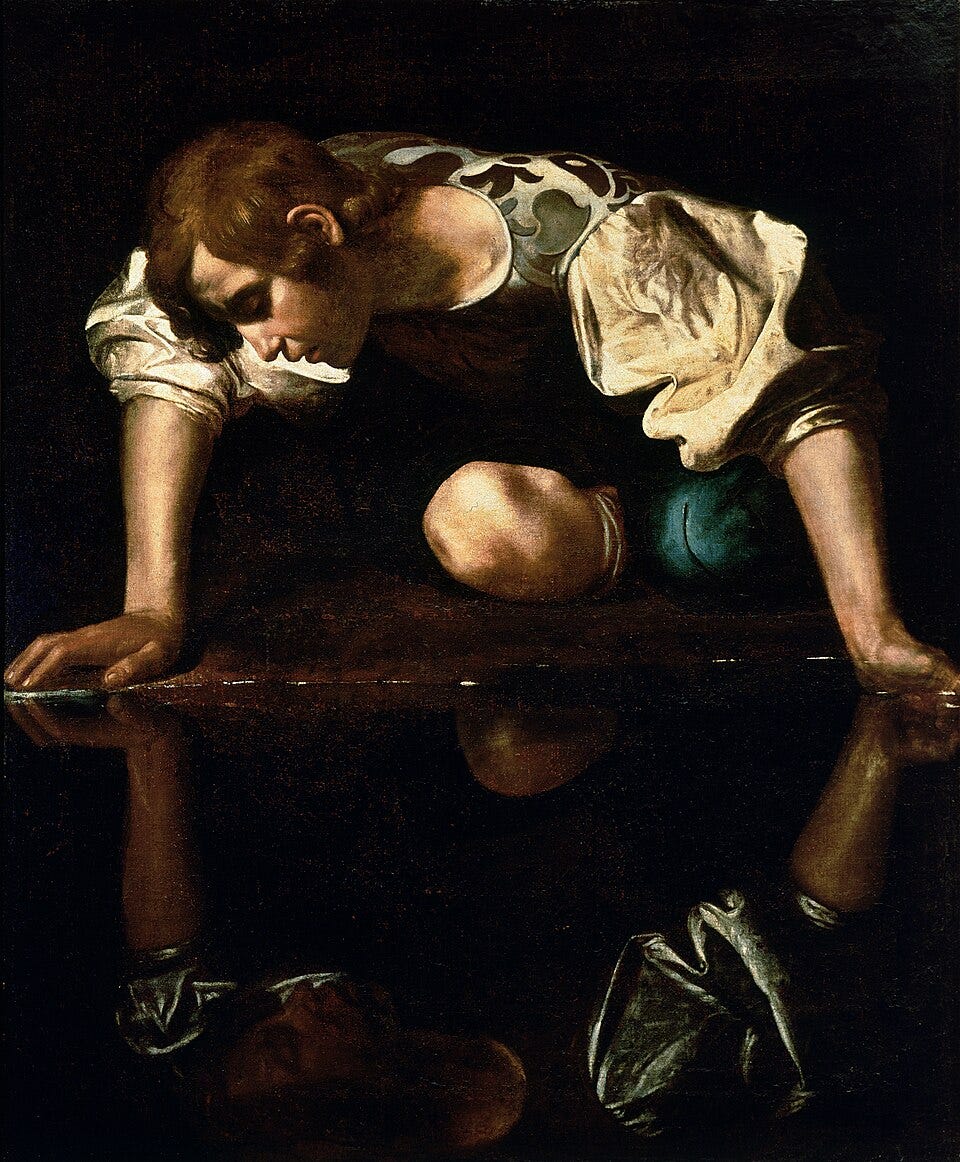
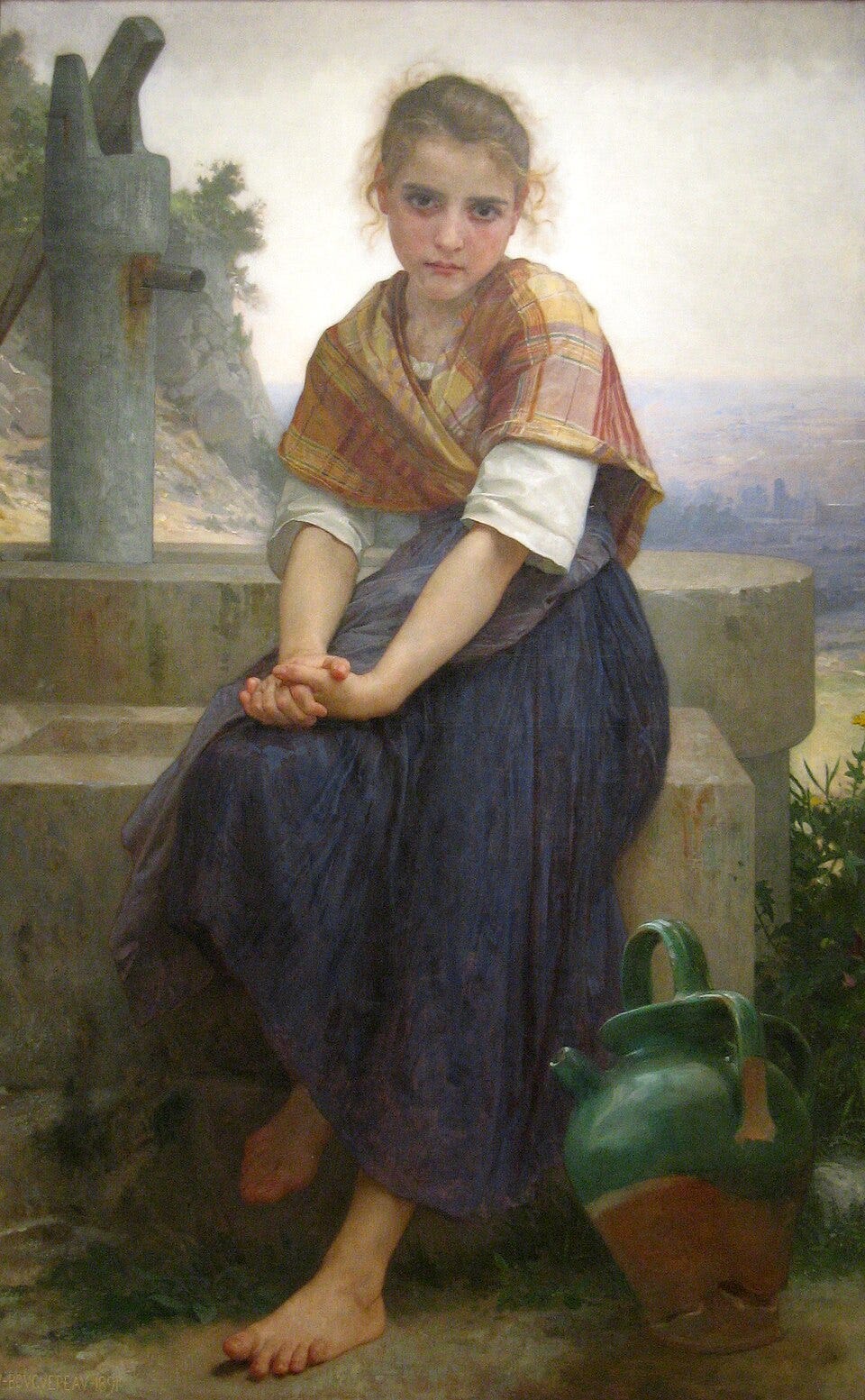
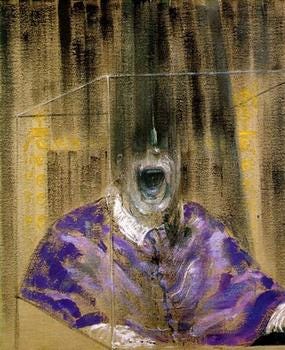

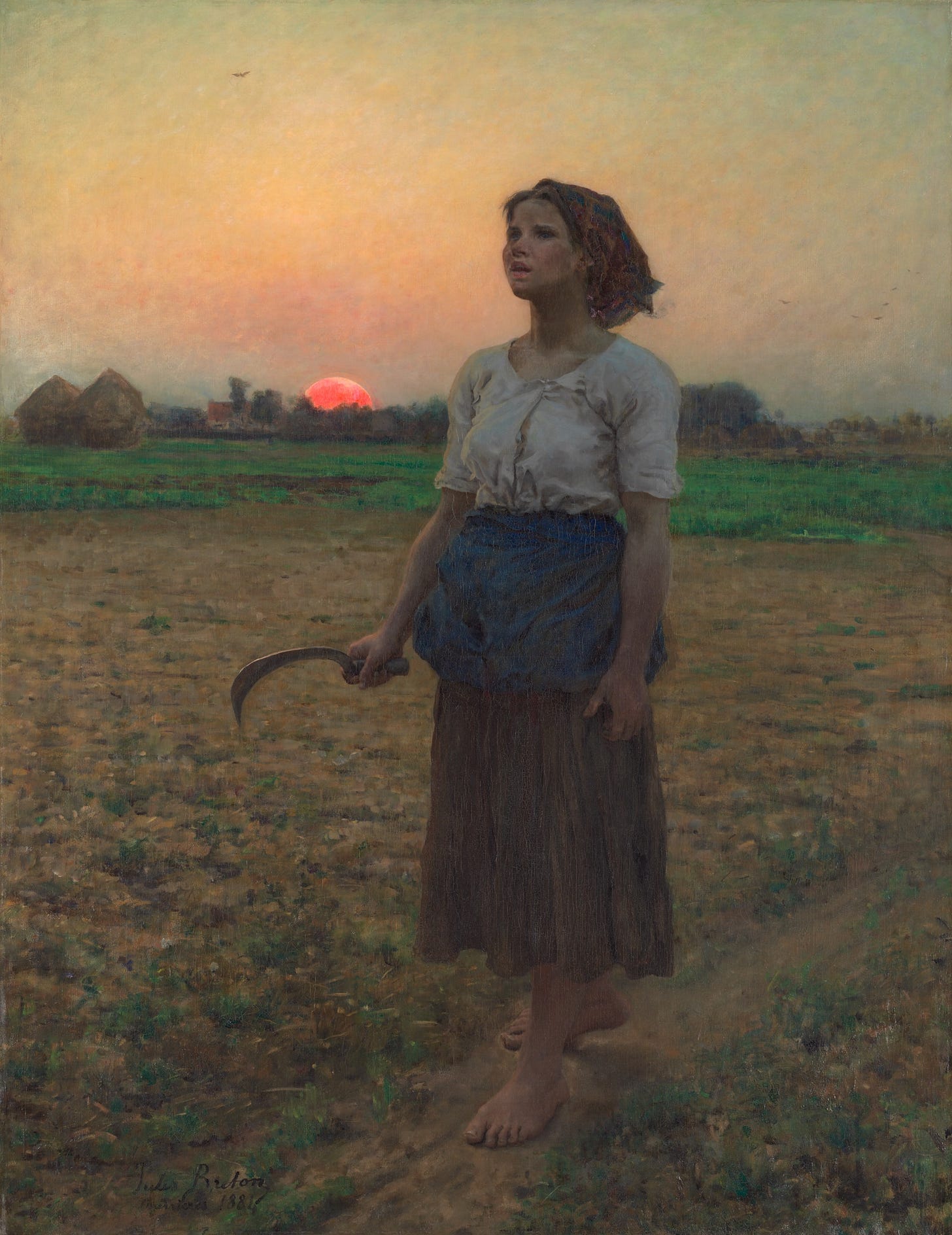
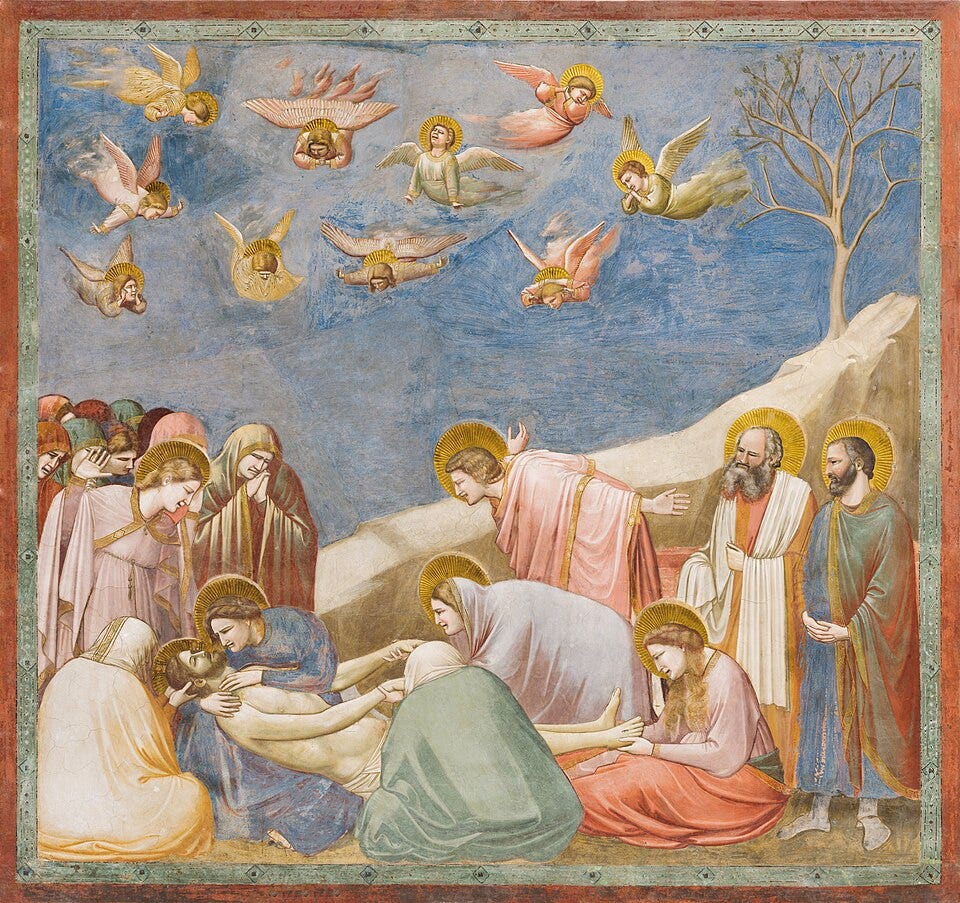
This is easily one of the most succinct yet detailed explorations of something I've felt deep down somewhere but never been able to conceptualise fully until reading this piece. Banger after banger of a paragraph resonates with me I keep wanting to pull quotes from it. Thank you for writing this. It's utterly brilliant.
This is so relatable. Lately, I’m been noticing that what makes us human, and different from animals and plants, is our self-consciousness. This leads us to self-criticism, fear of others, and a need for validation (a perverse, simultaneous attraction and repulsion). Then I remember that we are also nature, and come from the same roots. Just as moss or a twisted tree doesn’t feel self-conscious, we as humans can surrender our self-consciousness and just be - for me, this happens most when I am literally touching nature. Writing is an exercise in tapping into essence (my me-ness), revealing it, and that expression go, like a leaf falling. I do this to model it for my kids, since I agree that, as moms, our hiding or making ourselves small, rather than being free, doesn’t serve our children.